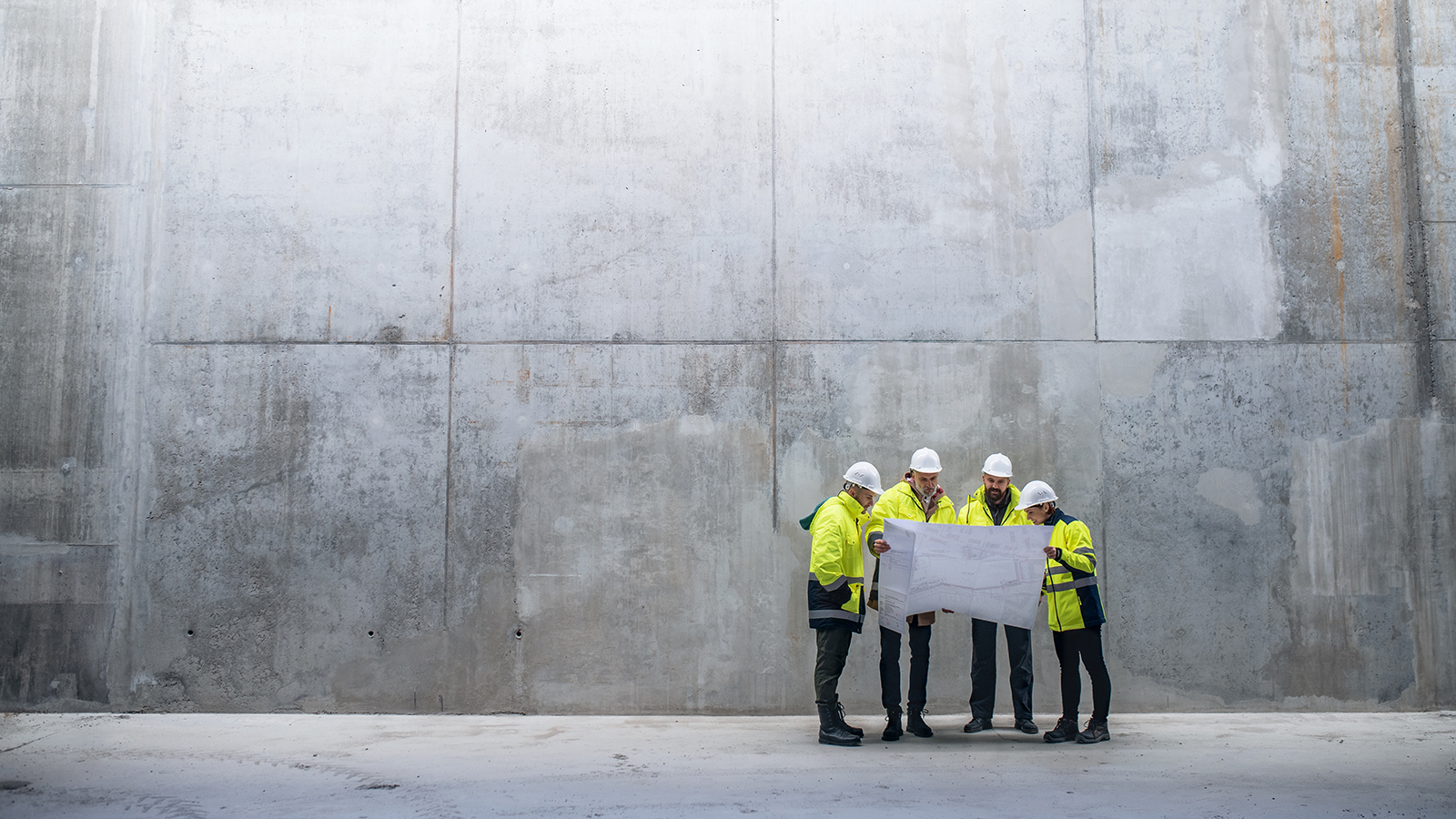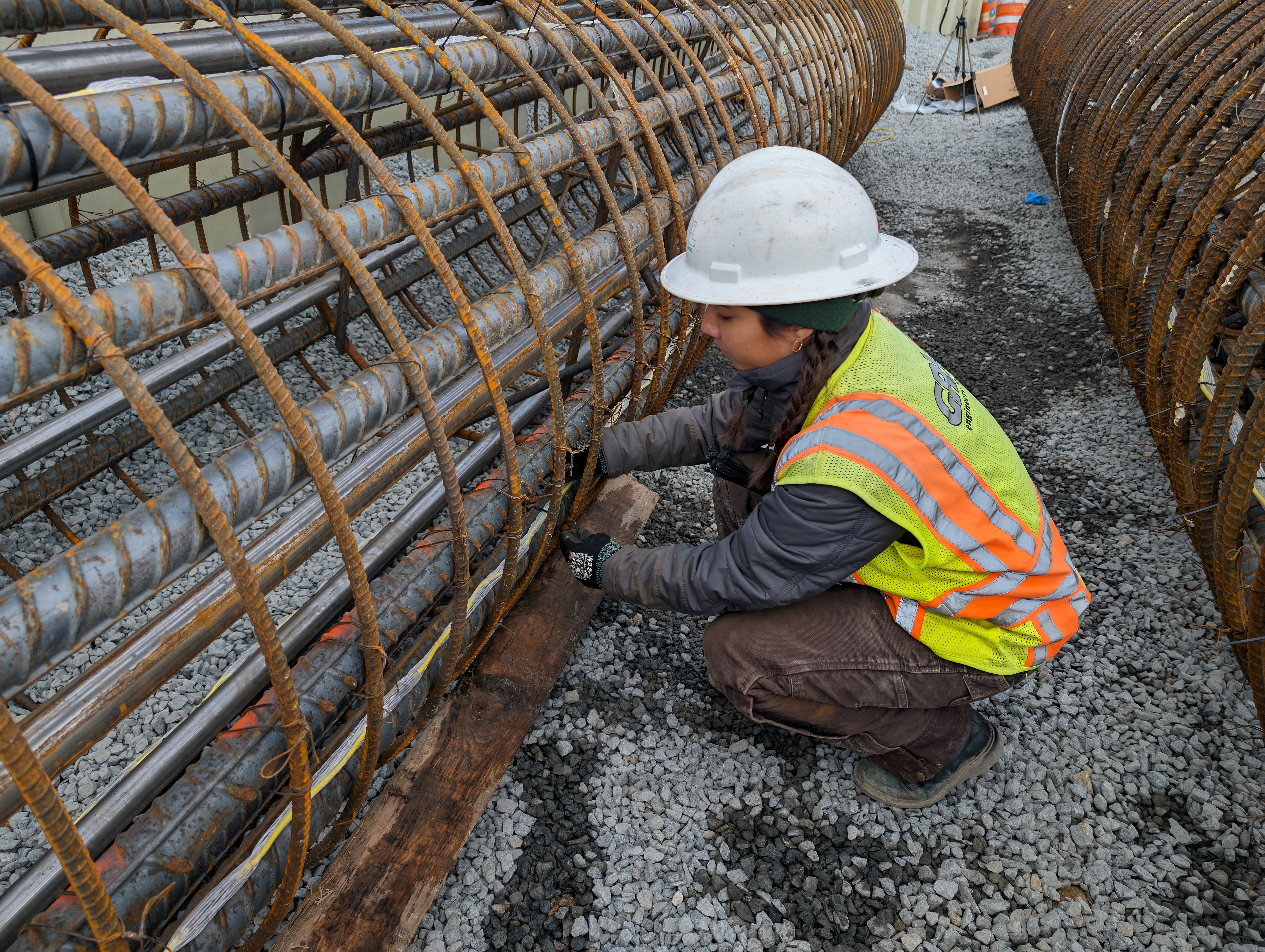Concrete Contractors Rancho Cucamonga: How to Evaluate Suppliers, Mixes, and Surface Finishes
Wiki Article
The Important Function of Concrete Structure in Structural Integrity and Long Life
When it concerns constructing a residential or commercial property, the foundation is a lot more crucial than you might believe. Concrete foundations provide unrivaled strength and toughness, ensuring your framework can endure various ecological difficulties. Without a solid base, you run the risk of prospective issues like shifting or splitting, which can endanger safety and worth. Comprehending the subtleties of concrete foundations can be the key to preserving your financial investment for many years to come. What should you take into consideration following?Comprehending the Relevance of Concrete Foundations
Concrete foundations are essential to the total stability of any kind of structure, as they provide the essential support needed to withstand various lots and environmental problems. When you think of building a home or a business room, the foundation is the initial point you ought to take into consideration. It functions as a barrier versus moisture, shielding your property from water damages. A well-placed concrete foundation additionally protects against settling and changing, which can cause fractures in walls and floorings. You'll intend to guarantee that the structure is appropriately developed and enhanced, as this impacts the durability of your building. Furthermore, a solid structure can enhance power performance by minimizing air leakages. Bear in mind, neglecting the importance of a concrete structure can cause costly repair services down the line. Spending in a high quality structure upfront is important for the stability and sturdiness of your structure.
Advantages of Concrete Foundations for Architectural Integrity
While several elements add to a building's structural integrity, concrete structures provide unequaled durability and toughness. You'll value that concrete can stand up to extreme weather condition problems, standing up to both dampness and temperature fluctuations. This strength indicates your framework is much less likely to experience cracking or shifting in time, which can jeopardize its safety.Additionally, concrete's integral weight offers a strong base, avoiding movement throughout natural occasions like quakes or floods. When you pick a concrete foundation, you're likewise selecting low upkeep; unlike wood, it won't rot or bring in parasites, conserving you time and money in repairs.Moreover, concrete's fire resistance offers included safety, ensuring your framework can withstand heats without significant damage. In general, investing in a concrete structure implies you're prioritizing the long-lasting stability and integrity of your structure, making it a sensible selection for any type of building job.Common Kinds Of Concrete Foundations
When it comes to constructing structures, recognizing the usual types of concrete foundations can help you make notified selections for your project. The most prevalent types include slab-on-grade, crawl area, and full cellar foundations.A slab-on-grade structure is a straightforward, cost-effective option, where a thick concrete piece is put directly on the ground. This type functions well in warm climates, as it minimizes warmth loss.Crawl space structures boost the home slightly over ground, enabling air flow and accessibility to plumbing and electric systems. This design can assist stop moisture issues.Full basement structures offer added living or storage room while giving exceptional architectural assistance. They require more excavation and are generally utilized in colder environments to stop frost heave.Aspects to Consider When Designing a Concrete Structure

Ideal Practices for Setting Up Concrete Foundations
When you're setting up a concrete structure, correct site prep work is necessary to guarantee security (West Coast General Engineering Concrete). You'll additionally require to comprehend reinforcement strategies to boost strength and longevity. Do not neglect the curing procedure, as it plays a basic duty in achieving a solid structure.Site Prep Work Relevance
Although it may seem simple, proper website preparation is important for ensuring a solid and sturdy concrete structure. Start by removing the area of any type of particles, plants, or natural material that might jeopardize the structure's stability. Next, evaluate the soil type and compaction; you may require to excavate or add materials to produce a secure base. Level the ground to ensure also weight distribution and prevent working out issues later on. Installing correct drainage systems is also necessary to avoid water buildup, which can damage the foundation in time. Mark out the structure's dimensions precisely to assist the putting process. By adhering to these steps, you'll establish the phase for a successful concrete structure that stands the examination of time.
Support Methods Explained
Once the site is effectively prepared, the following action in guaranteeing a strong concrete structure involves carrying out effective reinforcement strategies. You should start by utilizing steel rebar, which supplies tensile toughness and aids stop cracking. Lay the rebar in a grid pattern, seeing to it it rises making use of spacers to maintain appropriate insurance coverage. Additionally, think about making use of cord mesh for additional support, specifically in locations subject to heavy lots. Don't fail to remember to connect the rebar junctions safely with cable. For larger structures, fiber support can enhance sturdiness, lowering the risk of shrinkage cracks. Always comply with local structure codes and guidelines to guarantee compliance. By view publisher site applying these reinforcement techniques, you'll substantially boost your structure's strength and long life, laying a strong foundation for your structure.Treating Refine Basics
To ensure your concrete foundation cures correctly, it is very important to keep sufficient dampness and temperature conditions instantly after pouring. Start by covering the surface area with a wet burlap or plastic sheeting to maintain dampness. This keeps the concrete hydrated, avoiding fractures and making sure toughness. You should likewise keep an eye on the temperature; ideal treating conditions are between 50 ° F and 90 ° F. If it's too warm, haze the surface routinely to stop fast evaporation. For winter, think about utilizing insulating blankets to maintain warmth. Go for a treating period of at the very least 7 days, as this is crucial for ideal stamina development. By complying with these ideal practices, you'll enhance your structure's durability and durability, making sure architectural integrity for years ahead.Maintenance of Concrete Foundations for Long Life
To maintain your concrete structure solid and lasting, routine examinations are important. You should also assure efficient drainage solutions remain in place to avoid water damages. If you spot any splits, resolving them immediately will save you from larger problems down the line.
Regular Inspections and Analyses
While routine examinations and evaluations may appear like a job, they're necessary for keeping the integrity of your concrete structure. By consistently examining for fractures, shifts, or signs of wear, you can capture possible issues prior to they escalate into pricey repair work. Search for any kind of water pooling around the foundation or uncommon settling, as these can indicate underlying troubles. It's additionally important to keep track of any kind of adjustments in your home's framework, like doors that stick or windows that do not open smoothly. Maintaining a document of your assessments helps track adjustments in time, enabling for aggressive maintenance. Inevitably, these assessments assure your structure continues to be secure, supporting the long life and safety and security of your entire structure. Do not neglect this essential aspect of homeownership!Efficient Drain Solutions
Normal inspections can disclose concerns like drain issues that may compromise your concrete structure's stability. To avoid water accumulation, ensure your rain gutters and downspouts straight water away from the structure. Installing French drains can properly redirect surface area and groundwater, minimizing pressure on your foundation walls. In addition, rating the soil around your home aids guarantee that water moves away, instead of merging near your foundation.Consider using sump pumps in locations susceptible to flooding, as they proactively eliminate excess water. On a regular basis inspect for obstructions in water drainage systems and clear them promptly. You'll protect your foundation's honesty and durability by taking these proactive procedures. Bear in mind, effective drainage options are crucial for preserving a solid, sturdy concrete structure.Motivate Crack Repair Works
When you discover fractures in your concrete structure, resolving them without delay is essential for keeping its durability. Little splits can promptly evolve right into larger problems, compromising the architectural honesty of your home. Routinely examine your structure for indications of damage, such as horizontal or upright fractures. If you find this identify any, do not wait-- fix them immediately. You can utilize epoxy injections or concrete patching substances, which work for sealing splits. Constantly follow the producer's instructions and think about getting in touch with a professional for considerable damage. Keep in mind, timely fixings not just improve your foundation's sturdiness yet also conserve you cash in the lengthy run by stopping more substantial fixings down the line. Stay positive, and your structure will stay strong and safe.Resolving Usual Problems With Concrete Structures
Concrete structures can deal with different problems over time, making it essential to determine and resolve them quickly. One of the most typical troubles is cracking, which can take place due to temperature level changes or settling dirt. If you see splits, it's important to assess their size and depth; tiny cracks can usually be secured, while larger ones may call for specialist evaluation.Water breach is one more major concern. Excess dampness can bring about mold and mildew growth and structural deterioration. Guarantee proper water drainage around your foundation to minimize this risk. In addition, try to find indications of changing or bowing wall surfaces, as this can show underlying concerns with your structure's stability.Regular inspections are essential to catch these issues early. If you identify any type of concerning indicators, do not be reluctant to seek advice from a structure specialist. By remaining proactive, you can preserve the honesty and durability of your concrete foundation, assuring your home remains risk-free and safe.Regularly Asked Inquiries
How Does Soil Type Impact Concrete Foundation Performance?
Soil type considerably affects concrete foundation performance. If you've got expansive clay, for circumstances, it can create shifting and cracking. Sandy soil could result in clearing up. Understanding your soil assists guarantee a stable structure.Can Concrete Foundations Be Fixed if Damaged?
Yes, you can repair broken concrete foundations. Depending on the extent of the damage, techniques like epoxy injection or piece jacking can recover stability. It's finest to consult a specialist for efficient options.What Is the Regular Life Expectancy of a Concrete Structure?
A concrete foundation normally lasts 30 to 100 years, relying on aspects like dirt problems, environment, and upkeep. You'll wish to watch on it to ensure it remains in good form throughout its lifespan.Are There Alternative Products to Concrete for Foundations?
Yes, there are alternatives to concrete for structures, like steel, timber, and even recycled products. Each alternative has distinct benefits and disadvantages, so you should consider your project's certain demands when these details selecting the right product.Exactly How Does Environment Impact Concrete Structure Longevity?
Environment significantly impacts concrete structure toughness (WCGE commercial concrete). Severe temperatures, moisture, and freeze-thaw cycles can weaken the product, leading to splits and structural concerns. You should think about neighborhood climate conditions when preparing your foundation to ensure lasting performanceReport this wiki page